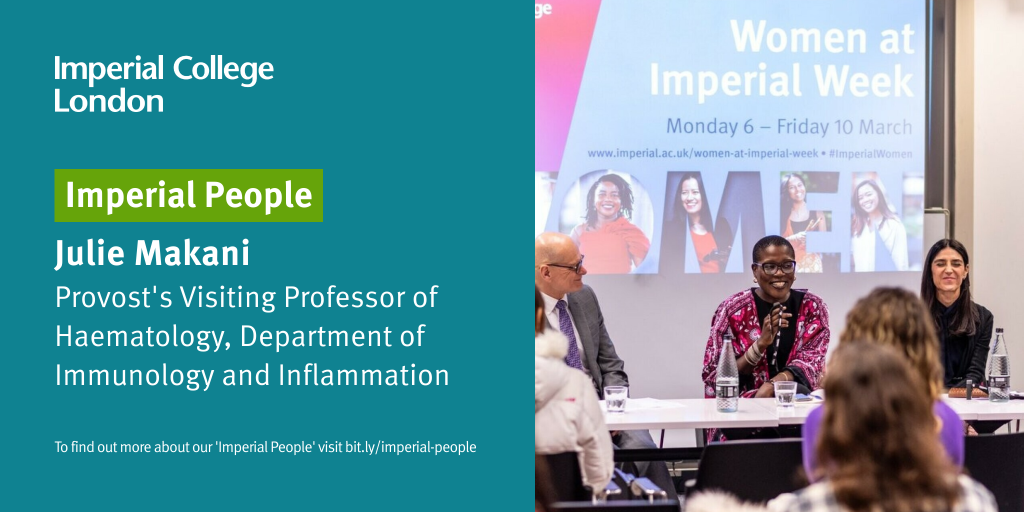
“As a Provost’s Visiting Professor, I hope to work with colleagues here to develop a platform for coordination, health, advocacy, research, and training in Africa.”
I trained in medicine at Muhimbili University of Health and Allied Sciences (MUHAS) in Dar es Salaam, Tanzania, graduating in 1994. During my medical training, I did a student elective at the Royal Free Hospital in London. While at this placement I decided that I would like to specialise in internal medicine. At that time in Tanzania there were limited opportunities for specialist training as people were encouraged to go into public health. There also were no active haematology specialisation programmes because there were only two haematologists in the whole country.
Fortunately, there was a postgraduate course in internal medicine at the Royal Postgraduate Medical School in the UK, which then became part of Imperial College School of Medicine (now known as the Faculty of Medicine). After doing this, I completed the MRCP whilst working with University of Oxford. I then went back to Tanzania – mainly because I wanted to establish a clinical and scientific career in Africa, rather than being based in the UK. I received a training fellowship from the Wellcome Trust (completing my PhD) and set out to establish and strengthen the sickle cell and haematology health service in Tanzania, establish a research career and develop training programmes. I realised there will always be competing priorities and tension between the health services, research, and teaching and what I needed to do was focus on one thing, so I focused on sickle cell disease. Three of my cousins were born with sickle cell disease of different levels of severity, and all of them died. When I think about the burden of disease, it keeps me up at night.
As a Provost’s Visiting Professor, I hope to work with colleagues here to develop a platform for coordination, health, advocacy, research, and training in Africa (CHARTA). I will strengthen research using the genomics platform established with H3Africa and share our experience and learning to help people apply this to other conditions such as multiple myeloma, systemic lupus erythematosus and breast cancer. By being here, I hope to establish new partnerships and create potential opportunities for collaboration and knowledge exchange.
Another aspect I want to be involved in is health policy, being involved at different levels of advocacy and trying to make decision makers understand why they should invest in sickle cell disease. From an African perspective sickle cell disease has the biggest burden in terms of prevalence, morbidity and mortality, and it’s curable with gene therapy.